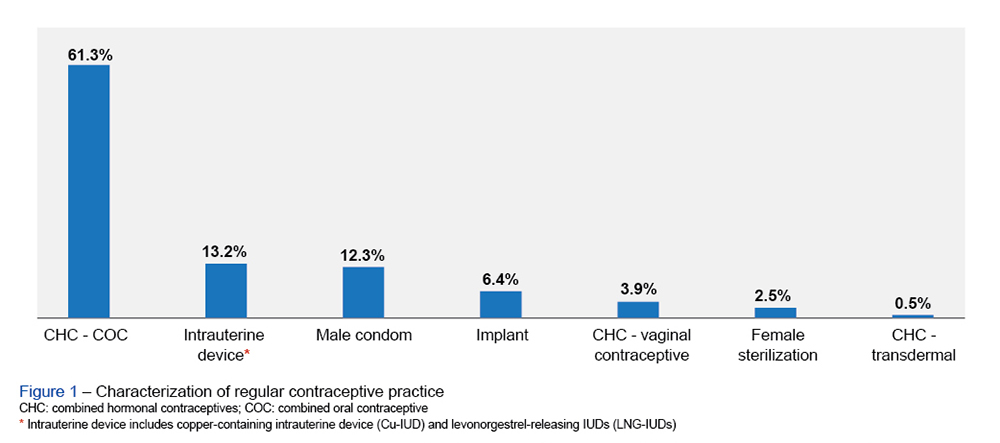SOCIAL MEDIA
Portuguese Medical Association's Scientific Journal

Introduction: The lack of knowledge about the existence, effectiveness, and supply of emergency contraception as well as access to it, its effective duration and the lack of recognition of the need for its use can prevent women from using it. The aim of this study was to ascertain the attitudes, experience, level of knowledge and information sources about emergency contraception of Portuguese female users of healthcare services.
Material and Methods: We conducted a multicentre, cross-sectional, observational study among 280 Portuguese women users of health care services through an original and anonymous questionnaire composed of 30 questions.
Results: The mean age of the women who replied to the questionnaire was 33.83 ± 8.76 years. Of the observed sample, 27.7% used EC, 50% of whom with no counselling. Despite 92.1% of women claiming knowledge about emergency contraception, only 31.2% of these answered 8 - 10 questions correctly (14 in total). The media were the most frequent source of information (63.4%). Most participants (67.5%) considered that emergency contraception is associated with severe adverse reactions. Furthermore, 76% did not know the time range of effectiveness after unprotected sexual intercourse. Youngest age (p = 0.038), higher education level (p < 0.001), increasing parity (p = 0.051) and previous use of emergency contraception (p = 0.011) were identified as the determinant sociodemographic factors for a higher level of knowledge about emergency contraception.
Discussion: The use of emergency contraception after counselling by healthcare professionals was lower than reported in the literature.
Conclusion: This study showed that female users of healthcare services were aware of the existence of emergency contraception, but they demonstrated a low level of knowledge about it, especially regarding the correct period of use, place of acquisition and safety issues.